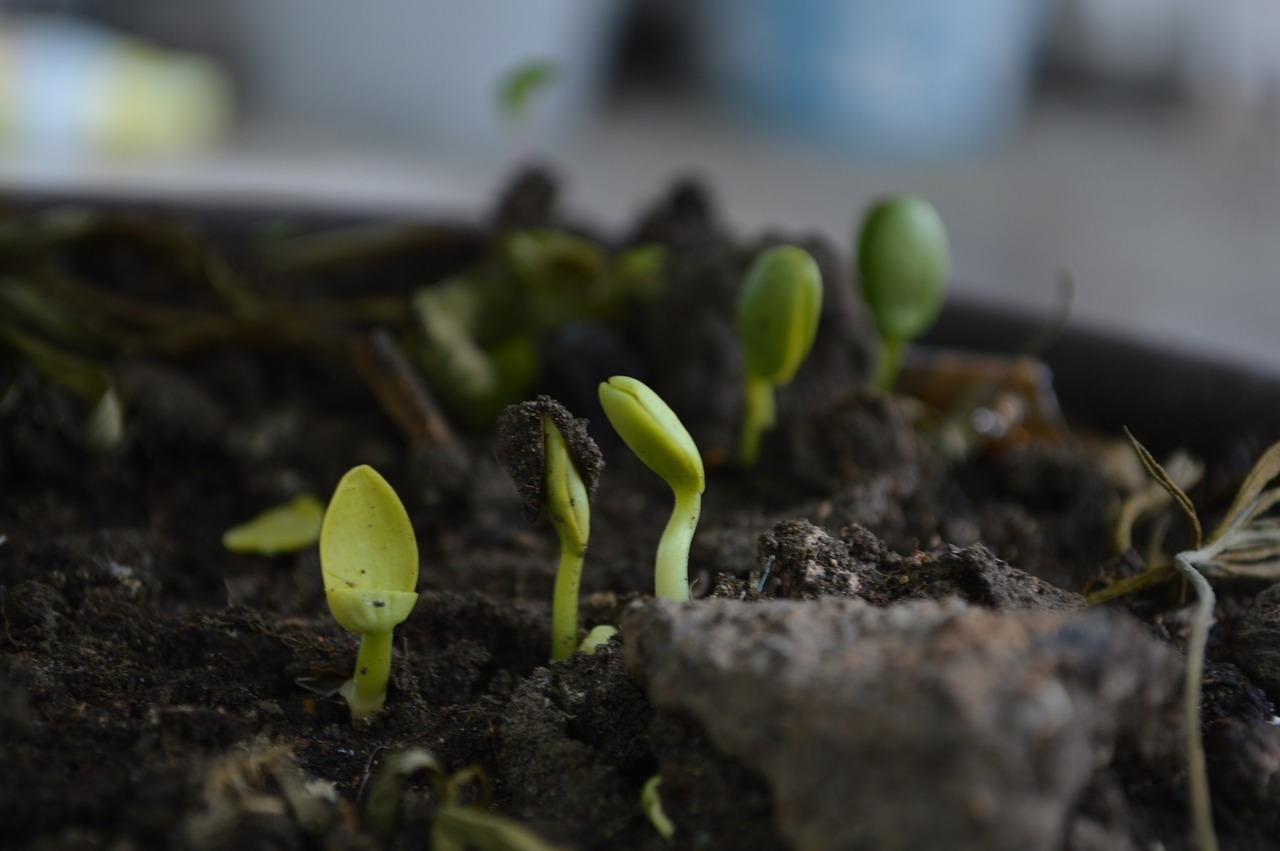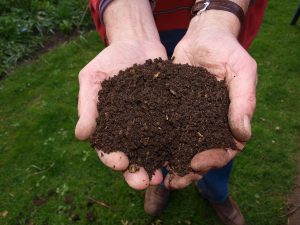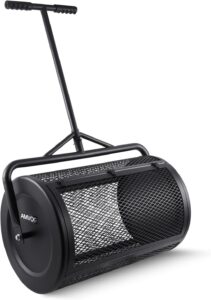In our quest to live more sustainably, we’ve often found ourselves wondering about the lesser-known elements of the composting process. One such question we frequently encounter is, “Can I compost corn cobs?” This article delves into the nitty-gritty of composting corn cobs, including their decomposition rate and the benefits of adding them to our compost piles. Let’s explore how these often-discarded pieces of summer’s bounty can contribute to richer soil and a greener lifestyle. Have you ever found yourself standing in your kitchen after a summer BBQ, holding a corn cob and wondering, “Can I compost corn cobs?” Well, you’re not alone. Many of us are on a quest to reduce waste and be more eco-friendly, and composting is a fantastic way to do just that. In this article, we’ll dive deep into the world of corn cob composting. We’ll explore whether you can compost corn cobs, how to do it effectively, and the benefits it brings to your compost pile and garden. Let’s get started, shall we?

Can I Compost Corn Cobs?
The short answer is: Yes, you can compost corn cobs! Corn cobs are indeed compostable, but there are some things you should know to ensure they break down effectively and contribute to your compost in the best possible way.
Why Compost Corn Cobs?
Corn cobs are a valuable addition to your compost pile for several reasons. First and foremost, they are biodegradable and add a rich source of carbon to your compost, which is essential for creating balanced compost known as “brown material.” Additionally, corn cobs help improve the structure and aeration of the compost pile. They create air pockets within the compost that aid in oxygen flow, which is crucial for the microbial activity needed to break down organic matter.
The Breakdown Process
Corn cobs are hardy and take longer to decompose compared to other kitchen scraps. While this might seem like a disadvantage, it actually benefits your compost pile by providing long-term structure and aeration. However, to speed up the process, you might need to take a few extra steps.
Methods for Composting Corn Cobs
There are various effective methods to compost corn cobs. Here, we will discuss a few, ranging from simple to more involved approaches.
Shredding
Shredding corn cobs into smaller pieces can significantly speed up their decomposition. By increasing the surface area exposed to microbial activity, shredded corn cobs break down more quickly.
How to Shred Corn Cobs:
- Use a wood chipper or garden shredder to process the corn cobs.
- If you don’t have access to this equipment, a heavy-duty knife or cleaver can do the trick, though it requires more effort.
Adding to an Active Compost Pile
If you already have an active compost pile with a good mix of greens (nitrogen-rich materials) and browns (carbon-rich materials), you can simply add the corn cobs directly.
Steps to Add Corn Cobs:
- Break the corn cobs into smaller chunks if possible.
- Mix them well into the center of the compost pile, where microbial activity is most intense.
- Ensure the pile remains moist but not waterlogged.
- Turn the pile regularly to incorporate air and redistribute heat.
Bokashi Composting
Bokashi composting is an anaerobic process that can handle tougher materials like corn cobs.
Bokashi Composting Steps:
- Add corn cobs to your Bokashi bin along with Bokashi bran.
- Allow the material to ferment for a few weeks.
- After fermentation, transfer the material to a traditional compost pile or bury it in the soil to complete the composting process.
Benefits of Composting Corn Cobs
Now that we’ve covered the how-tos, let’s dive into why you would want to go through the trouble of composting corn cobs. The benefits are numerous, and they contribute significantly to both the composting process and your garden.
Carbon-Rich Addition
Corn cobs are primarily carbon, making them an excellent brown material for your compost pile. A balanced compost pile with the right ratio of greens to browns breaks down more efficiently and produces richer compost.
Improved Aeration
Due to their structure, corn cobs help create air pockets in the compost pile. Good aeration is critical for microbial activity, ensuring that the decomposition process proceeds efficiently.
Long-Term Compost Structure
While corn cobs take longer to break down, their persistence can be advantageous. They provide long-term structure to your compost pile, aiding in maintaining consistent microbial activity over time.
Reduced Waste
Composting corn cobs instead of throwing them away not only reduces waste but also turns what would be trash into valuable compost, enriching your soil and promoting a healthier garden.
Practical Tips for Composting Corn Cobs
Let’s delve into some practical tips to make the process of composting corn cobs easier and more effective.
Pre-Soaking
Soaking corn cobs in water for a day or two before adding them to your compost pile can help soften them and jumpstart the decomposition process.
Balance Your Ratios
Corn cobs are high in carbon, so be sure to balance them with nitrogen-rich materials like kitchen scraps, grass clippings, or coffee grounds. A good rule of thumb is to aim for a 30:1 carbon-to-nitrogen ratio in your compost pile.
Turn Your Pile Regularly
Turning your compost pile regularly is crucial for aeration and even decomposition. Aim to turn your pile every couple of weeks, ensuring that corn cobs and other materials are evenly distributed.
Maintain Moisture
Your compost pile should be moist, akin to a wrung-out sponge. Corn cobs can sometimes dry out, so monitor the moisture level and add water if necessary.
Check the Temperature
An active compost pile will generate heat. By regularly checking the temperature, you can gauge the effectiveness of the decomposition process. Corn cobs in the center of a hot pile will break down more quickly.

Common Questions About Composting Corn Cobs
Even with all this information, you might still have some questions. Here are answers to some common questions we hear about composting corn cobs.
Do Corn Cobs Attract Pests?
Corn cobs, like other food scraps, can attract pests if not managed properly. To mitigate this, make sure to bury the corn cobs well within the compost pile and cover them with a layer of brown material.
Can Corn Husk Be Composted Along with Corn Cobs?
Absolutely! Corn husks are also compostable and can be added to your compost pile. They, too, add carbon and help with aeration, complementing corn cobs effectively.
How Long Do Corn Cobs Take to Break Down in Compost?
The time it takes for corn cobs to break down can vary based on factors like pile size, temperature, and how the cobs were prepared. On average, it can take several months to over a year for corn cobs to fully decompose in a traditional compost pile. Shredding and pre-soaking can significantly reduce this time.
What Should I Do with Partially Decomposed Corn Cobs?
If you find partially decomposed corn cobs in your compost, don’t worry. Just leave them in the pile longer or move them to a new pile. They will eventually break down as the microbial activity continues.
Troubleshooting Common Issues
No composting endeavor is without its challenges. Here, we’ll address some common issues you might encounter when composting corn cobs and how to solve them.
Compost is Too Dry
If you notice that your compost is too dry, especially around the corn cobs, add some water and mix the pile well. Incorporating more green material, which has higher moisture content, can also help.
Slow Decomposition
If the corn cobs are taking too long to decompose, consider shredding them before adding to the pile. Also, ensure your compost pile is hot enough (ideally between 135–160°F) and well-aerated.
Foul Odor
A foul odor is often a sign of imbalance, typically too much nitrogen (green material) or insufficient aeration. Add more brown material like dried leaves, straw, or newspaper, and turn the pile to improve aeration.
Invasion by Pests
Pests can be a problem if food scraps, including corn cobs, are not properly buried. Make sure to cover corn cobs well with brown material and avoid adding meat or dairy products, which can attract pests.

Conclusion
So, can we compost corn cobs? Absolutely! Not only can we compost them, but we should also embrace them as a valuable part of our composting efforts. With the right techniques and a bit of patience, corn cobs can enrich our compost piles, improve our soil, and ultimately contribute to a more sustainable lifestyle. Whether we shred them, add them to our active piles, or use Bokashi composting, corn cobs have a unique role to play in our composting journey. Happy composting, and here’s to turning waste into garden gold!



